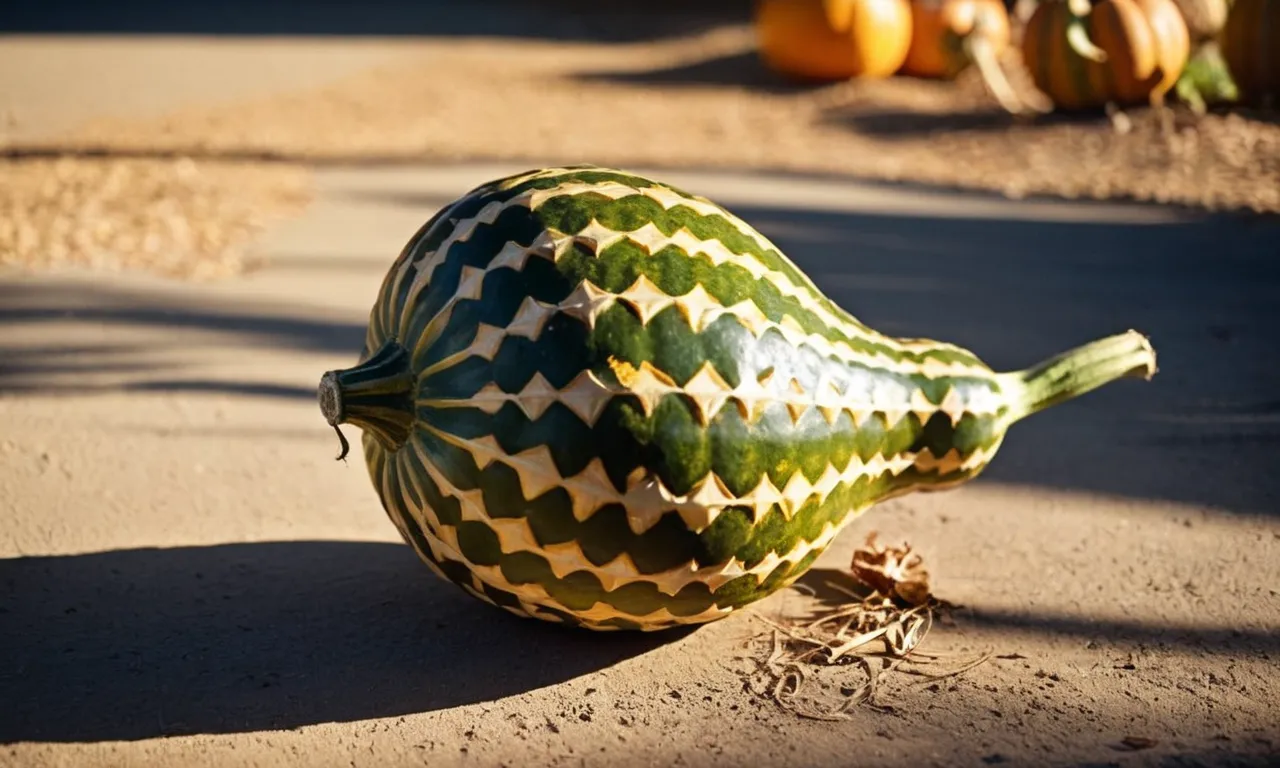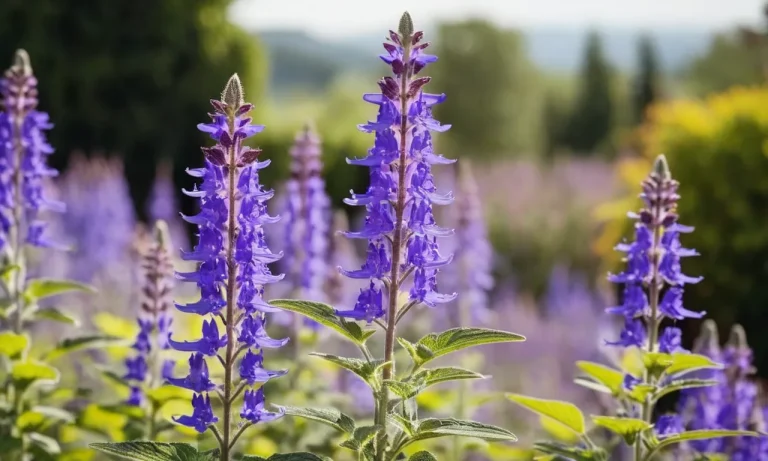What Is A Gourd In The Bible? A Complete Guide
The mention of gourds in the Bible often leaves readers curious about what exactly they are. If you’ve ever wondered what kind of plant a ‘gourd’ refers to in scripture, you’re not alone!
If you’re short on time, here’s a quick answer to your question: Gourds in the Bible most likely refer to bottle gourds, a type of hard-shelled fruit plant that was commonly grown in ancient Israel and the surrounding regions for use as containers, utensils, and more.
In this comprehensive guide, we’ll explore the botanical background of the gourd plant, trace mentions of gourds throughout the Bible, analyze their cultural significance, and reflect on the symbolic meanings these versatile vegetable vessels carried.
Identifying the Gourd Plant in the Bible
The Hebrew Word for Gourd in Scripture
The original Hebrew word used for “gourd” in the Bible is qiyqayon. This word is only used once in the entire Bible, in the story of Jonah and the vine in Jonah 4:6-10. The exact identity of the qiyqayon plant has been debated by Bible scholars for centuries.
Some of the features of the biblical gourd that can be inferred from the Jonah passage are:
- It grew very rapidly, springing up in a night and reaching maturity in about a day (Jonah 4:6, 10)
- It provided ample shade from the sun, suggesting large leaves (Jonah 4:6)
- It withered quickly when attacked by a worm (Jonah 4:7)
These characteristics have led botanists to propose several candidates for the mysterious qiyqayon of Scripture.
Botanical Candidates for Biblical Gourds
Here are some of the plants that have been suggested as possibilities for the biblical “gourd”:
Castor Bean Plant
The castor bean (Ricinus communis) grows rapidly in hot, arid areas. It can sprout in a single day from a seed and grow over 5 meters tall within weeks. However, its leaves are not particularly large, so it may not provide extensive shade.
Colocynth
The colocynth (Citrullus colocynthis) is a type of bitter wild gourd common in the Mediterranean. It has large scraggly vines and big leaves that provide good shade. However, the colocynth fruit is poisonous which seems at odds with Jonah’s account.
Bottle Gourd Plant
The bottle gourd (Lagenaria siceraria), also known as calabash gourd, could match the fast growth rate described in the Jonah story. One drawback is that standard bottle gourd vines only reach up to 4 meters in length.
| Plant Candidate | Shade Ability | Growth Rate |
|---|---|---|
| Castor Bean | Low | Very High |
| Colocynth | High | Moderate |
| Bottle Gourd | Moderate | High |
As the table above shows, each proposed plant matches some attributes of the biblical account but has deficiencies in other areas. The exact botanical identity of the gourd in Jonah’s account may never be determined with full certainty. In any case, the narrative uses the ephemeral vine metaphorically, as an object lesson about compassion.
Key Biblical Passages Featuring Gourds
The Gourd in Jonah
The book of Jonah in the Old Testament tells the story of the prophet Jonah, who was called by God to preach repentance to the people of Nineveh. After initially refusing and being swallowed by a huge fish, Jonah goes to Nineveh and reluctantly delivers God’s message.
The people repent, and God spares the city from destruction.
After this, Jonah leaves Nineveh and camps outside the city, waiting to see what will happen. As Jonah sits in the hot sun, God causes a plant to grow up quickly and provide shade over Jonah’s head. The Bible describes this plant as a “gourd” in many translations.
Jonah is very happy about the gourd providing shade.
But the next morning, God causes a worm to attack the plant and make it wither. Then as the sun rises, God sends a scorching east wind. With the gourd withered, the sun blazes down on Jonah’s head and he becomes faint. Angry about the gourd, Jonah says, “It is better for me to die than to live.”
God then uses the incident to teach Jonah a lesson about compassion. God says that Jonah had compassion on the plant, even though he didn’t cause it to grow. Shouldn’t God then have compassion on the enormous city of Nineveh, with all its people and animals?
The passage illustrates how God cares about all people, not just the Israelites. (Jonah 4:6-11)
Elisha and the Wild Gourds
In 2 Kings 4:38-41, the prophet Elisha comes to Gilgal during a famine. His servant prepares a stew for the group of prophets, but accidentally uses poisonous wild gourds instead of edible gourds. The men cry out, “There is death in the pot!”
Elisha asks for some flour to be added to the stew. Miraculously, this makes the stew edible and harmless. This passage shows God’s power to transform something poisonous into something good for sustenance. The episode emphasizes God’s desire to provide for those who follow him, even in difficult circumstances.
Gourds in the Promised Land
When Moses sends the twelve spies into Canaan, they return with a cluster of grapes so large that it takes two men to carry it on a pole (Numbers 13:23). Along with the grapes, the land is described as flowing with milk and honey and producing abundant crops:
“They came to the Valley of Eshkol and cut down a branch bearing a single cluster of grapes. Two of them carried it on a pole between them, along with some pomegranates and figs. That place was called the Valley of Eshkol because of the cluster of grapes the Israelites cut off there.”
(Numbers 13:23-24)
The grapes and the figs imply that crops like gourds and melons were also present. After all, archaeology confirms that gourds like squashes and melons were cultivated in ancient Canaan.
Later, in Deuteronomy 8:7-8, Moses describes the bounty of produce in the Promised Land:
“For the LORD your God is bringing you into a good land—a land with brooks, streams, and deep springs gushing out into the valleys and hills; a land with wheat and barley, vines and fig trees, pomegranates, olive oil and honey; a land where bread will not be scarce and you will lack nothing; a land where the rocks are iron and you can dig copper out of the hills.
“
The Cultural Significance of Gourds in Ancient Israel
Gourds as Useful Household Items
Gourds played an important practical role in ancient Israelite households. As durable and lightweight fruits with a tough outer skin, gourds made ideal containers, utensils, and other useful household objects.
Archaeological evidence shows gourds were used to store liquids like water, wine, oil, and vinegar. When dried and hollowed out, larger gourds served as jugs, cups, bowls, and ladles. Smaller varieties became spoon-like scoops or dippers.
Gourds had many advantages that made them preferable to pottery for some uses. They did not break as easily if dropped and even floated in water. Israelites likely valued gourds while traveling long distances or working outdoors.
The prophet Isaiah highlighted the importance of gourds in a crisis when he compared the lack of drinkable water in a siege to having “no pitchers to catch water from the cistern” (Isaiah 36:16).
Gourds in Religious Rituals and Folk Magic
Though everyday household objects, gourds also held symbolic meaning in Israelite spirituality. As agricultural products coming from vines, they represented divine blessings of fertility and abundance. Consequently, gourds played roles in religious rituals giving thanks for harvests.
Gourds are specifically mentioned during the Jewish autumn festival of Sukkoth, when Israelites lived in temporary outdoor huts remembering their ancestors’ wilderness wanderings. The festival involved decorating huts with fruits and branches, including gourds as symbols of plentiful harvests from God (2 Kings 4:39).
First-fruits offerings to God often included early harvested gourds.
Interestingly, gourds even feature in ancient folk magic and superstition. One biblical story describes a poisonous gourd prepared mistakenly for a meal, leading to deaths. This grim tale likely reinforced traditional beliefs that gourds had spiritual powers and should be handled carefully.
Symbolic Meanings of the Gourd
The Gourd as Shelter and Provision
The gourd is first mentioned in the Bible in the book of Jonah. After Jonah preaches and the people of Nineveh repent, God provides Jonah with a plant described as a gourd to give him shade and shelter from the hot sun (Jonah 4:6).
This demonstrates God’s grace and provision, even for people like Jonah who struggled with obedience and compassion.
The sudden growth of the gourd has been seen as a miraculous sign of God’s ability to provide essentials like shelter quickly. As Bible scholar Joel Baden notes, the Hebrew word for gourd (qiqayon) likely refers to the castor bean plant, which can grow extraordinarily fast in hot conditions.
So this gourd represents divine intervention and rapid supply of relief.
The withering of the gourd also displays the transient nature of provisions God gives at specific times. As pastor John Piper suggests, “The shading plant was given only for a season. When God has accomplished his purpose, the shade is removed.”
The gourd thus symbolizes timely and temporary comfort amid distress.
The Withered Gourd as Ephemeral Human Achievements
Jonah was first glad, then angry when the gourd withered (Jonah 4:6-9). This hints at attachment to earthly shelters versus finding ultimate meaning in God. As Bible teacher R.C. Sproul observes, the gourd represents human ambitions or achievements which offer satisfying “shadows” but not eternal significance.
The vulnerability of gourds corresponds to many human accomplishments fading over time. Pastor John Piper notes how gourds wither quickly after ripening, “just like the righteousness of man in its best estate.
“ This applies to constructs like fame, wealth, kingdoms and other monuments to human status and power.
Thus the shriveled gourd in the Jonah narrative becomes a metaphor for the temporary nature of human labors apart from God. The life lesson is to cherish divine purposes rather than our limited achievements. As Bible teacher V.W.
Howley summarizes, “Our own efforts can result only in ‘gourds,’ which quickly fade. “ This draws us to higher spiritual goals aligned with God’s eternal values.
Conclusion
Gourds may seem like a minor botanical detail in scripture, but these versatile plant products carried important cultural associations for people of biblical times. As we’ve seen, gourds provided sustenance and shelter, figured into spiritual practices, and took on metaphorical meanings that resonated with biblical authors and audiences.
The next time you encounter one of the obscure gourd references in the Bible, remember there’s a rich botanical, cultural, and symbolic backstory behind these deceptively simple vegetable vessels. Instead of glossing over them, let the gourds open up new levels of meaning and insight into God’s living word.








